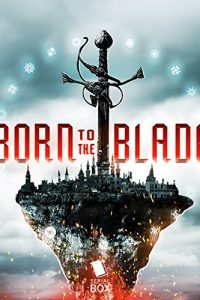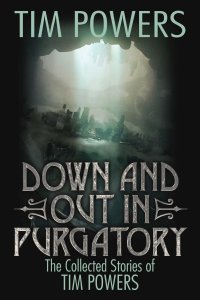Karen Burnham Reviews Short Fiction: Analog and Mithila Review
 Analog 9-10/22
Analog 9-10/22
Mithila Review 8/22
Analog for September/October has a novella, “Kingsbury 1944” by Michael Cassutt. It’s an alternate history based on the true fact that E.E. “Doc” Smith of Lensman fame, and Charles O. Finley, later owner of the Oakland Athletics baseball team, worked at the same ordnance plant during WWII. Into this mix add Alfred “Lefty” Kramer, the narrator and injured pitcher recruited by Finley more for his arm than for his chemistry degree. He falls into the orbit of the Siberians, some of his co-workers who seem to be doing hush-hush research and don’t particularly trust him, and Kay, a female physicist who is, of course, mostly assigned to get coffee. It’s a WWII/baseball/SF mashup made for fans, and an entertaining, plot-driven story. My favorite of the issue, for completely idiosyncratic reasons, is “Web Accessibility for Aliens” by Sean Vivier. Flash is working on a dating app that will include several alien species among its users. Flash is a UX (User eXperience) guy, and he’s trying to nudge the code into being as accommodating as possible, doing research into the different aliens and their cultures. But he gets a lot of pushback from coworkers and management who feel that even the slightest effort put into accessibility is a bridge too far. It’s a story with heart and a good point, and it wins my affection when the question of official standards comes up – something I’m deeply involved with in my day job. A story dealing with a different kind of accessibility is “What Was Your Inspiration?” by Sloane Leong. Here a visual artist also captures her entire thought process throughout the act of creation as a now-expected parallel addendum to the art itself. The critical community tears through her thoughts and interprets every smallest thread in the worst possible way, swarming through as an online mob and leaving both the art and artist in ruins.
Tom Greene brings us the novelette “No One the Wiser”, set in the American West post-Breakdown. Josie is acting mayor of a town, trying to restore vital water infrastructure without attracting too much attention. So she’s wary of Tyler, an investigator sent by a major biotech company who demands she accompany him as he investigates a fringe community of “folivores” who have been hanging around, potentially violat ing corporate intellectual property. Everyone in this story has hidden agendas they’re trying to hide from the others, and it’s a neat web to untangle. Elsewhere in the Anthropocene, in “Out of the Red Lands” by Marissa Lingen Emma Muller has been developing mining technology that can both rehabilitate previously exhausted mines and also make use of the poor ores on Mars. Luca Thiesen manages a camp of climate refugees in Luxembourg. Both are on the brink of despair at not having enough resources to pursue the courses that make obvious sense to them, when a chance encounter sees their paths intersect. As in Greene’s story, we’ll need to look at communities as much or more than heroic individuals as our climate changed future gets harsher.
On a more intimate note, “Inheritance” by Hannah Yang imagines a future where parents can bequeath their bank of memories to their child. Lily has always been the golden child, there for their mother. But her mother has chosen Grace to inherit her memories, which wounds Lily deeply. Grace doesn’t even want them, but there’s a ticking clock, as they can’t wait too long or else the memories will be lost. Grace’s dilemma is interspersed with memories from her mother’s point of view as their relationship evolved over their lives, prickly and standoffish as it was. It’s a well-done family portrait. A totally different family dynamic is at play in “Bumblebot” by Marie Vibbert. Nelly is looking after a community garden and talking with students who have developed an artificial bee that might help. Then she’s called away by her ex-husband to help care for his dysfunctional extended family. Nothing is happening in the “normal” or smooth way society wants things to run, but somehow food is grown and babies are cared for nonetheless.
It’s not every day that you get to read a story narrated by sentient fungus, but that’s just one entry you’ll find in the 16th issue of Mithila Review, themed as “Planet Democracy”. Hopepunk, which has been showing up on my radar more and more this year, takes many different forms here. For the fungus, look at “The Rhythms of the World” by Johnny Caputo. Narrated by a toxin-eating fungus that has been carried around for years by the human Aamsaa, the crisis is that there are almost no toxins left for the fungus to eat, and it’s starting to waste away. Aamsaa is one of the rare humans that is attuned enough to the language of the nonhuman world to be able to communicate on any level with the fungus, and they’ve become attached to each other. In “Trucker” by Buzz Dixon, it’s a future where only autonomous vehicles are allowed on the roads, and a group of elderly truckers meets up regularly to chat and reminisce about the good old days. Their reveries are interrupted when they see a pregnant teenager stowing away on one of the AV rigs. They spring into action to see if they can still make a difference, even in their automated world. Jetse de Vries spreads his imagination out to the four corners of the world in “Zen and the Art of Gaia Maintenance”. He imagines the efforts of four leaders: Chiken Wu of Chengdu, Joao Incanna of Lima, Grace M’Baku of the Limpopo basin, and Saaki Sami of Lapland. Each one builds a team to pursue eco-tech projects to help restore environments and communities. As much an essay as a story, it is an impressive dose of eco-techno-socio optimism.
Recommended Stories
“The Rhythms of the World”, Johnny Caputo (Mithila Review 8/22)
“Bumblebot”, Marie Vibbert (Analog 9-10/22)
“Web Accessibility for Aliens”, Sean Vivier (Analog 9-10/22)
This review and more like it in the November 2022 issue of Locus.
 While you are here, please take a moment to support Locus with a one-time or recurring donation. We rely on reader donations to keep the magazine and site going, and would like to keep the site paywall free, but WE NEED YOUR FINANCIAL SUPPORT to continue quality coverage of the science fiction and fantasy field.
While you are here, please take a moment to support Locus with a one-time or recurring donation. We rely on reader donations to keep the magazine and site going, and would like to keep the site paywall free, but WE NEED YOUR FINANCIAL SUPPORT to continue quality coverage of the science fiction and fantasy field.
©Locus Magazine. Copyrighted material may not be republished without permission of LSFF.







